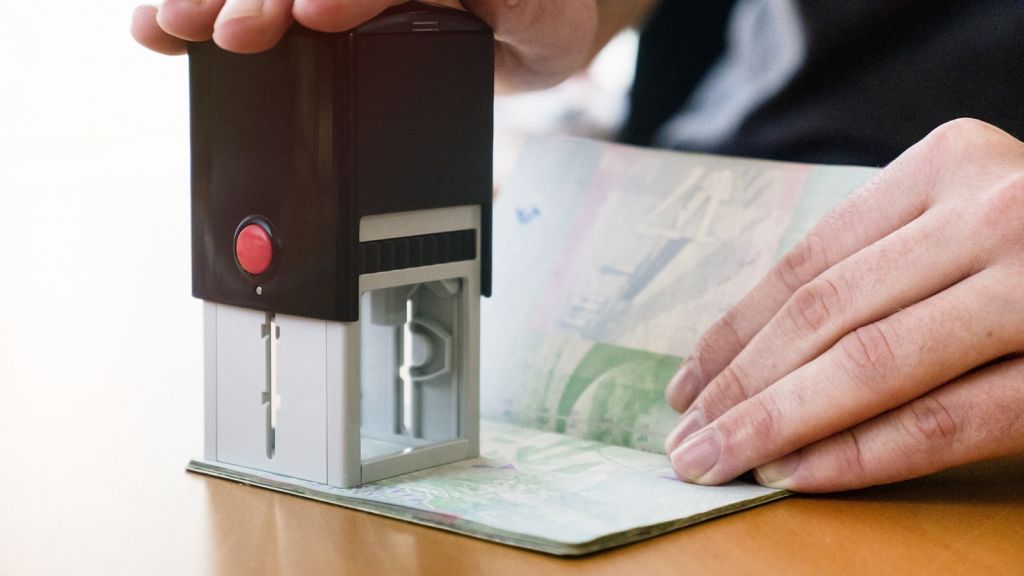Tatsiana Reviaka, President of the Belarusian Human Rights House, and Ales Bialiatski, Chairman of the Human Rights Centre Viasna, give their views on what visa-free travel will mean for civil society and for the human rights organisations within the Belarusian Human Rights House, which resides across the Belarus-Lithuanian border in Vilnius.
Tatsiana Reviaka, working on human rights from within Belarus, cautiously spoke of opportunities, while also addressing the issues that remain – “political censorship” at the border, and access to the country by international monitors:
“Civil society welcomed the decision of the Belarusian authorities, seeing it as if not a window, then at least a ‘ventlight of opportunities’ for Europeans and others interested in the development and establishment of relations with Belarusian colleagues. At least now they do not need a visa for short working visits. This may not be important initially for the Belarusian Human Rights House located in Vilnius, but it will be for the founding organisations of the House, which are operating in Belarus.
Only time will tell if this decision will remove the problem of “black lists,” which were applied to some of our foreign colleagues in previous years, including those from the Human Rights House Foundation. It is impossible to say for sure whether “political censorship” on the border will be cancelled for those who were previously banned from entering our country.
It is also unlikely that this decision will influence the opportunity for Miklós Haraszti, the UN Special Rapporteur on the situation of human rights in Belarus, to visit our country. The authorities haven’t recognised his mandate and have denied him the opportunity to visit the country; I see no reason to think that a five-day visa-free regime will solve this problem.
Of course, Belarusian Human Rights House will closely follow the practical implementation of the visa-free regime and observe what opportunities it opens. But today, I do not expect any breakthroughs for the country’s civil society in connection with this decision; and I do not see how it can seriously change the position and mission of the Belarusian Human Rights House.”
Like Reviaka, Ales Bialiatski works on human rights from within Belarus. He also spoke of opportunities, while cautioning that they are limited. Further, he compared the visa regime with those adopted by other countries in the region, and warned that there are still risks for foreign civil activists:
“I evaluate this step as a half-measure, which is already long overdue. The possibility to stay five-days visa-free stay and enter only through the Minsk-2 airport severely limits the ability and willingness of foreign citizens to visit Belarus. It will be difficult for the citizens of Lithuania and border regions of Poland to use these new opportunities, because the flight to Minsk doesn’t make much sense for them in terms of logistics.
Ukraine, for example, introduced a visa-free regime for citizens of the EU and the US more than 10 years ago. Kazakhstan has also cancelled visa requirement for EU citizens, since the beginning of 2017. But in Kazakhstan the duration of stay in the country is 30 days, much longer than in Belarus.
Nevertheless, a new window of opportunity has opened for civil society activists, students and civil activity partners from the countries covered by this decree of the president. Now they can participate in short-term activities on the territory of Belarus, such as seminars, meetings, conferences and round tables.
It should be borne in mind that there is a danger of extradition by authorities from Belarus for foreign civil activists, because of active civil engagement or participation in public events. Partial liberalisation of the visa regime does not solve the issue of control by the Belarusian authorities and by the security services over democratic non-governmental organisations and their foreign partners.
Concerning the activities of the Belarusian Human Rights House, it is unlikely that the partial liberalisation of the visa regime in Belarus will influence them.”
Tetsiana Reviaka considered why the authorities have taken such a step, pointing to politics and economics:
“There are two visible reasons for the decision of the Belarusian authorities regarding the five-days visa-free regime: economic and political. The economic component includes the expectation to have more tourists and business coming into the country, as well as the fact that foreigners discovering Belarus could increase the attractiveness of the country for foreign investments.
However, this is also a beautiful political gesture, to demonstrate that Belarus is open (even if this openness is limited) to the world, including to the West, to the European Union and to the United States, which could improve the image of Belarus. But it is not a selfless gesture; the Belarusian Ministry of Foreign Affairs has already said that it expects reciprocal steps.”
—
This article was first published as part of HRHF and the Human Rights Houses’ monthly newsletter. Sign up to receive news and insight into human rights issues and situations, the projects and activities of Human Rights Houses, and portraits and interviews with human rights defenders.
Visa free travel to Belarus
On 9 January 2017, the Belarussian president signed a decree establishing visa free entry to Belarus for foreigners from 80 countries, permitting them stay for five days without a visa. This provision only applies to entry and exit through Minsk National airport. It will come into force on 12 February 2017.
According to the website of the Belarusian president, “the document is aimed at enhancing trips of business travellers, tourists, and individuals with a regular passport, and will not apply to foreigners engaged in official travels.”





